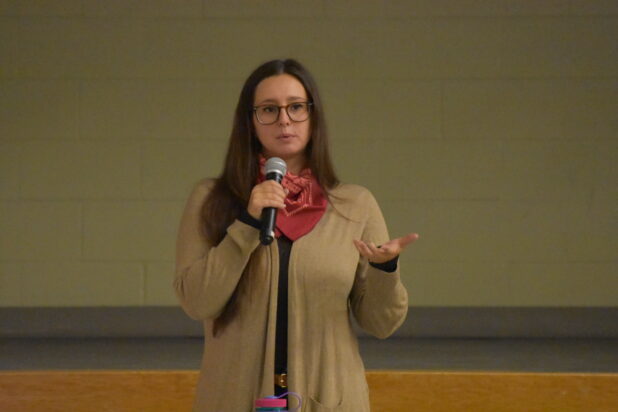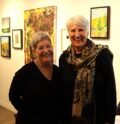Headline News
Community Corridor of Inclusion and Resilience hosts workshops
November 23, 2022

By Kristena Schutt-Moore
The Community Corridor of Inclusion and Resilience is hosting a series of workshops called Remembering and Resistance. The goal of this series of workshops is to offer community members the opportunity to learn about Indigenous identity and Canada’s colonial history of violence as well as the opioid crisis, homelessness and the housing crisis. The Remembering and Resistance workshop series will also offer opportunities to honour, remember, resist and find hope through collective grieving and art making.
The first workshop was the Masauoskarini Algonquin Workshop on Thursday, Nov. 17 at Hastings Highlands Centre in Maynooth. The second will be The Opioid Crisis and Housing Crises workshop at North Hastings Community Trust on Jan. 19, 2023. The third will be the Shadow Box Memorial Workshop on March 16. The collective art created at these workshops will be brought together for a Final Community Art Build and Celebration of Resistance and Hope in September 2023.
The workshop on Nov. 17 was called Braiding Knowledges: North Hastings is Anishinaabeaki. The presentation was given by Algonquin woman, educator and consultant Christine Luckasavitch, and also featured a tactile workshop by artist, Alza Plumley. Luckasavitch led a group discussion about land and place and how can the people of North Hastings, which is part of unceded Algonquin territory, come together and care for this place and each other. While the discussion was happening Plumley taught those in attendance how to make braided braids from different materials. Once the breads were completed they were given back to Plumley so that they can be included in the finished community mural/art display in September.
Community Corridor of Inclusion and Resilience is a community engaged art project representing a collaboration between local North Hastings organizations and the North Hastings community. It was driven by North Hastings Integration Association and has found a home establishing strong roots at North Hastings Community Trust. CCIR is a multi-phased project that involves building a collaborative public art piece that celebrates unknown and known cultural richness in our community that will leave a public art legacy. CCIR centers around and honors Indigenous knowledge, it is intergenerational, decolonial and involves a deep exploration of social inclusion. This project is led by, and grounded by, Indigenous Elders and knowledge keepers in Kijicho Manito Madaouskarini of Algonquin First Nation.
The Remembering and resistance workshops is the second phase for the CCIR and work to build and strengthen relationships between organizations and community members.
In a press release sent out in October, the CCIR said that their focus in phase two will reflect the crucial need to recognize, remember and grieve colonial violence, and honour and resist through a collective community art piece that concludes in a woven textile installation and memorial.
Partners in this Community Corridor of Inclusion and Resilience project are Kijicho Manito Madauoskarini Algonquin First Nation, North Hastings COmmunity Trust, ReDefine Arts, North Hastings Community Integration Association, Maggie’s Resource Centre, the Algonquin Arts Council, and has received support from the Ontario Arts Council. Those interested in more information about the project are invited to reach out the artistic leads for Community Corridor of Resilience and Inclusion Noreen Tinney, Victoria Burke, Eliza Plumley and Marlena Zuber by emailing [email protected].

















